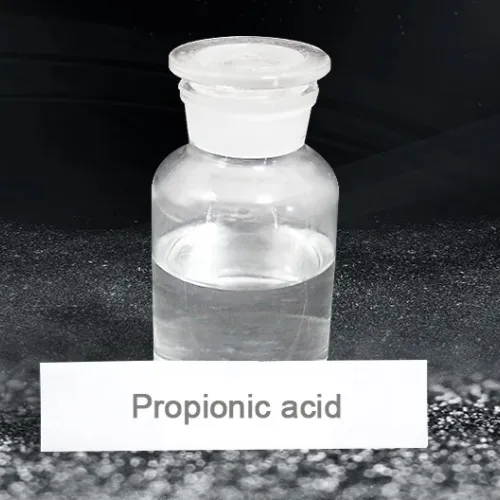Warning: Undefined array key "title" in /home/www/wwwroot/HTML/www.exportstart.com/wp-content/themes/1198/header.php on line 6
Warning: Undefined array key "file" in /home/www/wwwroot/HTML/www.exportstart.com/wp-content/themes/1198/header.php on line 7
Warning: Undefined array key "title" in /home/www/wwwroot/HTML/www.exportstart.com/wp-content/themes/1198/header.php on line 7
Warning: Undefined array key "title" in /home/www/wwwroot/HTML/www.exportstart.com/wp-content/themes/1198/header.php on line 7
- Afrikaans
- Albanian
- Amharic
- Arabic
- Armenian
- Azerbaijani
- Basque
- Belarusian
- Bengali
- Bosnian
- Bulgarian
- Catalan
- Cebuano
- China
- China (Taiwan)
- Corsican
- Croatian
- Czech
- Danish
- Dutch
- English
- Esperanto
- Estonian
- Finnish
- French
- Frisian
- Galician
- Georgian
- German
- Greek
- Gujarati
- Haitian Creole
- hausa
- hawaiian
- Hebrew
- Hindi
- Miao
- Hungarian
- Icelandic
- igbo
- Indonesian
- irish
- Italian
- Japanese
- Javanese
- Kannada
- kazakh
- Khmer
- Rwandese
- Korean
- Kurdish
- Kyrgyz
- Lao
- Latin
- Latvian
- Lithuanian
- Luxembourgish
- Macedonian
- Malgashi
- Malay
- Malayalam
- Maltese
- Maori
- Marathi
- Mongolian
- Myanmar
- Nepali
- Norwegian
- Norwegian
- Occitan
- Pashto
- Persian
- Polish
- Portuguese
- Punjabi
- Romanian
- Russian
- Samoan
- Scottish Gaelic
- Serbian
- Sesotho
- Shona
- Sindhi
- Sinhala
- Slovak
- Slovenian
- Somali
- Spanish
- Sundanese
- Swahili
- Swedish
- Tagalog
- Tajik
- Tamil
- Tatar
- Telugu
- Thai
- Turkish
- Turkmen
- Ukrainian
- Urdu
- Uighur
- Uzbek
- Vietnamese
- Welsh
- Bantu
- Yiddish
- Yoruba
- Zulu
Dec . 14, 2024 11:08 Back to list
Comparing the Benefits and Drawbacks of Stevia and Aspartame as Sweeteners
Stevia vs. Aspartame A Comparative Analysis of Natural and Artificial Sweeteners
In the quest for healthier lifestyles, consumers are increasingly turning to alternative sweeteners to reduce their sugar intake. Among the most popular options are Stevia and Aspartame, two sweeteners that have garnered significant attention over the years. While both are used to enhance the sweetness of foods and beverages without adding calories, they have distinct chemical compositions, health implications, and public perceptions. This article delves into the key differences between these two sweeteners, helping consumers make informed choices.
Origins and Composition
Stevia is a natural sweetener derived from the leaves of the Stevia rebaudiana plant, native to South America. The sweet compounds in Stevia, known as steviol glycosides, are significantly sweeter than sugar—up to 300 times sweeter—yet contain zero calories. Because it is plant-based, Stevia appeals to those seeking a more natural alternative to synthetic sweeteners.
In contrast, Aspartame is an artificial sweetener composed of two amino acids aspartic acid and phenylalanine. It is approximately 200 times sweeter than sugar and is commonly used in a variety of low-calorie and sugar-free products, including soft drinks, chewing gum, and yogurt. Aspartame provides low-calorie sweetness but is not a natural product; its creation involves complex chemical reactions in a laboratory setting.
Health Considerations
When considering the health implications of these sweeteners, it is essential to examine the research surrounding them. Stevia has been generally recognized as safe by major health organizations, including the World Health Organization (WHO) and the U.S. Food and Drug Administration (FDA). Some studies suggest that Stevia may have anti-inflammatory and antioxidant properties, potentially benefiting cardiovascular health. However, as with any sweetener, excessive consumption can lead to a bitter or licorice aftertaste, which some individuals may find unpalatable.
stevia v aspartame

Aspartame, on the other hand, has been subject to controversy and scrutiny since its approval for use in food products. While regulatory agencies like the FDA have deemed Aspartame safe for consumption, concerns remain over its potential link to health issues such as headaches, allergic reactions, and even cancer. Those with a genetic disorder called phenylketonuria (PKU) must avoid Aspartame, as they cannot metabolize phenylalanine, leading to potentially dangerous levels in the body.
Consumer Perception and Trends
Consumer perception of sweeteners is heavily influenced by health trends and the growing inclination towards natural foods. Stevia has gained popularity, particularly among health-conscious individuals and those following specific diets like keto or paleo, due to its natural origin and lack of calories. Its rise can also be linked to the increasing awareness of grocery shoppers regarding the ingredients in their foods, prompting many to avoid artificial additives.
Conversely, Aspartame has faced backlash, which has led to a decline in its use as more consumers seek natural alternatives. Despite being one of the most tested food additives in history, the negative media coverage surrounding Aspartame has created a stigma that can impact consumer choices. Many health enthusiasts perceive Aspartame as an unsafe or undesirable option due to its synthetic nature.
Conclusion
In the battle of sweeteners, Stevia and Aspartame stand as representatives of two distinct philosophies one natural and the other artificial. Stevia offers a calorie-free, plant-based sweetening option with a favorable safety profile, making it an increasingly appealing choice for many consumers. Aspartame, while effective in providing sweetness with minimal calories, continues to contend with health concerns and negative perceptions.
Ultimately, the choice between Stevia and Aspartame boils down to personal preference, dietary needs, and individual health considerations. As consumers become more informed about the ingredients in their food and the implications of their choices, they are empowered to select sweeteners that align with their lifestyles, whether that be through the natural sweetness of Stevia or the tried-and-tested utility of Aspartame.
Latest news
-
Certifications for Vegetarian and Xanthan Gum Vegetarian
NewsJun.17,2025
-
Sustainability Trends Reshaping the SLES N70 Market
NewsJun.17,2025
-
Propylene Glycol Use in Vaccines: Balancing Function and Perception
NewsJun.17,2025
-
Petroleum Jelly in Skincare: Balancing Benefits and Backlash
NewsJun.17,2025
-
Energy Price Volatility and Ripple Effect on Caprolactam Markets
NewsJun.17,2025
-
Spectroscopic Techniques for Adipic Acid Molecular Weight
NewsJun.17,2025

